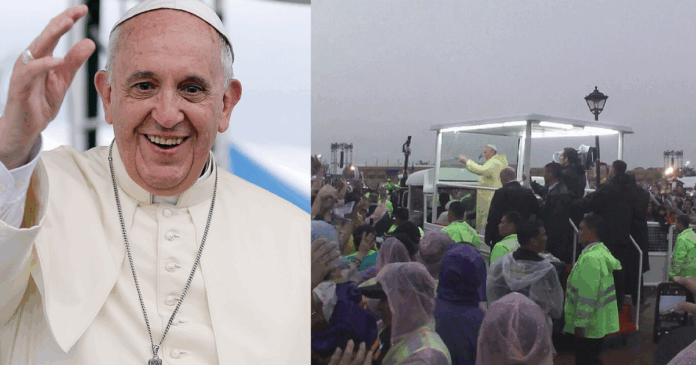The Vatican announced the passing of Pope Francis at the age of 88 on the morning of Monday, April 21. Prior to this, the Holy Father had suffered from a serious illness after being hospitalized in February due to bronchitis, which later developed into double pneumonia.
Although his death is a sorrowful event, there is no denying that humanity is fortunate to have had a Pope Francis in its history. Thus, it is only fitting to celebrate his meaningful life in this world before bidding him farewell.
Pope Francis: A Life of Service and Compassion
Pope Francis, born Jorge Mario Bergoglio, entered the world on December 17, 1936, in Buenos Aires, Argentina. He studied in high school to become a chemical technician and worked in the food-processing industry. However, he later felt a divine calling to serve the Church.
Before being ordained as a priest in 1966, Pope Francis taught literature and psychology at a high school while studying theology. This blend of education and vocation continued in the 1980s, when he served as a seminary teacher in Germany, balancing graduate studies with his role as rector.
By 1998, he was appointed Archbishop of Buenos Aires and was later elevated to cardinal in 2001.
Twelve years later, on March 13, 2013, Pope Francis was elected the 266th pope of the Roman Catholic Church, following the resignation of Pope Benedict XVI. He made history as the first pope from South America and the first Jesuit to hold the papacy.
He also advocated for a more inclusive and compassionate Church. Known for his humility, simple lifestyle, and commitment to social justice, Pope Francis brought a refreshing and often transformative approach to the papacy. He became known for his progressive views, particularly on issues such as same-sex unions and divorce. He also spoke out against various forms of abuse and injustice while upholding traditional teachings.
He encouraged a more pastoral and understanding tone toward LGBTQ+ individuals, divorcees, and those marginalized within society. His statement, “Who am I to judge?” in reference to gay Catholics, marked a notable shift in the Church’s rhetoric.
He chose his papal name in honor of Saint Francis of Assisi, symbolizing his dedication to the poor, peace, and the environment. His decision to live in the Vatican guesthouse rather than the papal apartments reflected his emphasis on simplicity and service.
In fact, during his final homily at St. Peter’s Basilica on Easter Sunday, April 20, he called for a ceasefire in Palestine — a fitting reflection of his unwavering advocacy for peace.
Despite some resistance from conservative circles within the Church, Pope Francis remained a powerful moral voice on global issues. With a papacy marked by dialogue, mercy, and reform, he was one of the most influential religious leaders of the 21st century.
For these reasons, it is no surprise that Pope Francis earned the title of the “People’s Pope” from many around the world.



